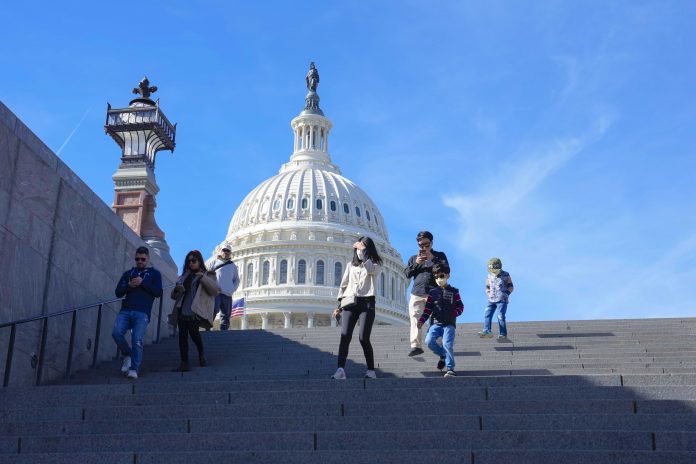
By MIKE CATALINI
Associated Press
Democratic control of the U.S. Senate was settled Saturday when Sen. Catherine Cortez Masto of Nevada won reelection, but the U.S. House majority is still in question. Let’s see where things stand.
WHY HASN’T THE AP CALLED CONTROL OF THE HOUSE YET?
It’s simple: Neither party has yet reached the 218 seats needed to control the House.
The Associated Press has declared winners in most contests, but a handful are outstanding. Heading into Sunday, Republicans had 211 seats compared with 204 for the Democrats, leaving 20 undecided.
The AP does not make projections and will only declare a winner when it’s determined there is no scenario that would allow the trailing candidates to close the gap. In some contested races where a party or candidate has a history of consistent and convincing wins, The AP can use results from AP VoteCast — a survey of American voters aimed at determining why they voted how they did — to confirm a candidate’s victory, even as soon as polls close. But some races, as it is again this year, can take days or even weeks to call.
WHAT STATES ARE STILL COUNTING VOTES?
California, the country’s most populous state, has more undetermined contests than any other. A dozen races remain to be called there, with millions of votes left to count.
There are also close races in Colorado and Oregon, among others, including some tight enough that they could be headed to a recount.
In Alaska, where incumbent Democrat Mary Peltola won a special election this summer to fill an open House seat held for decades by Republicans, a second round of vote tabulating could take place.
That’s because Alaska has ranked choice voting in which voters rank candidates. If no one gets more than half of the votes cast on or before Nov. 8, the person with the fewest votes gets eliminated and voters’ choices count toward their second pick. The rounds continue until two candidates are left and the one with the most votes wins.
Peltola was leading Republicans Sarah Palin and Nick Begich in a race too early to call.
WHAT OTHER CHALLENGES ARE THERE?
In 2020, former President Donald Trump challenged outcomes of the vote for president in states across the country. Those challenges failed in courts, though Trump continued to insist falsely that the race was stolen.
So far, nothing like those kinds of objections has materialized.



















